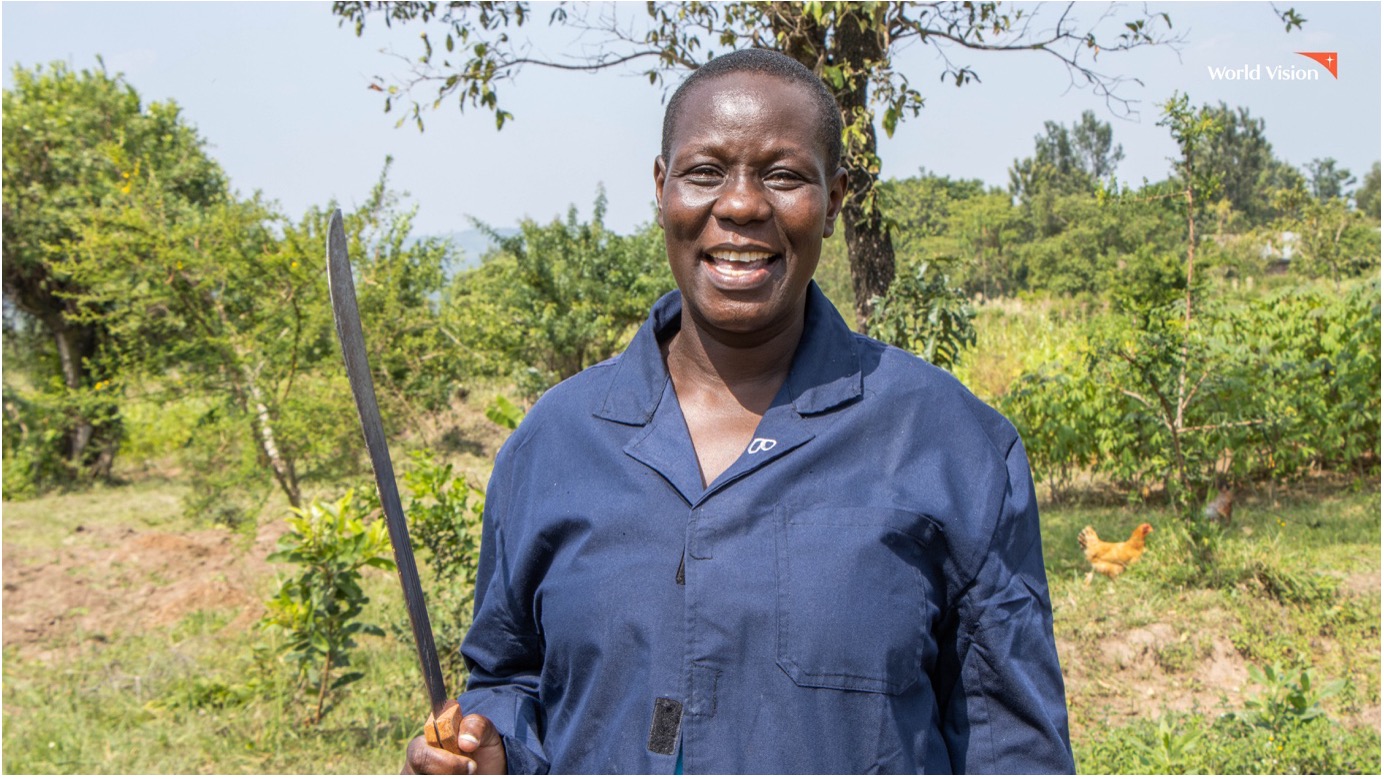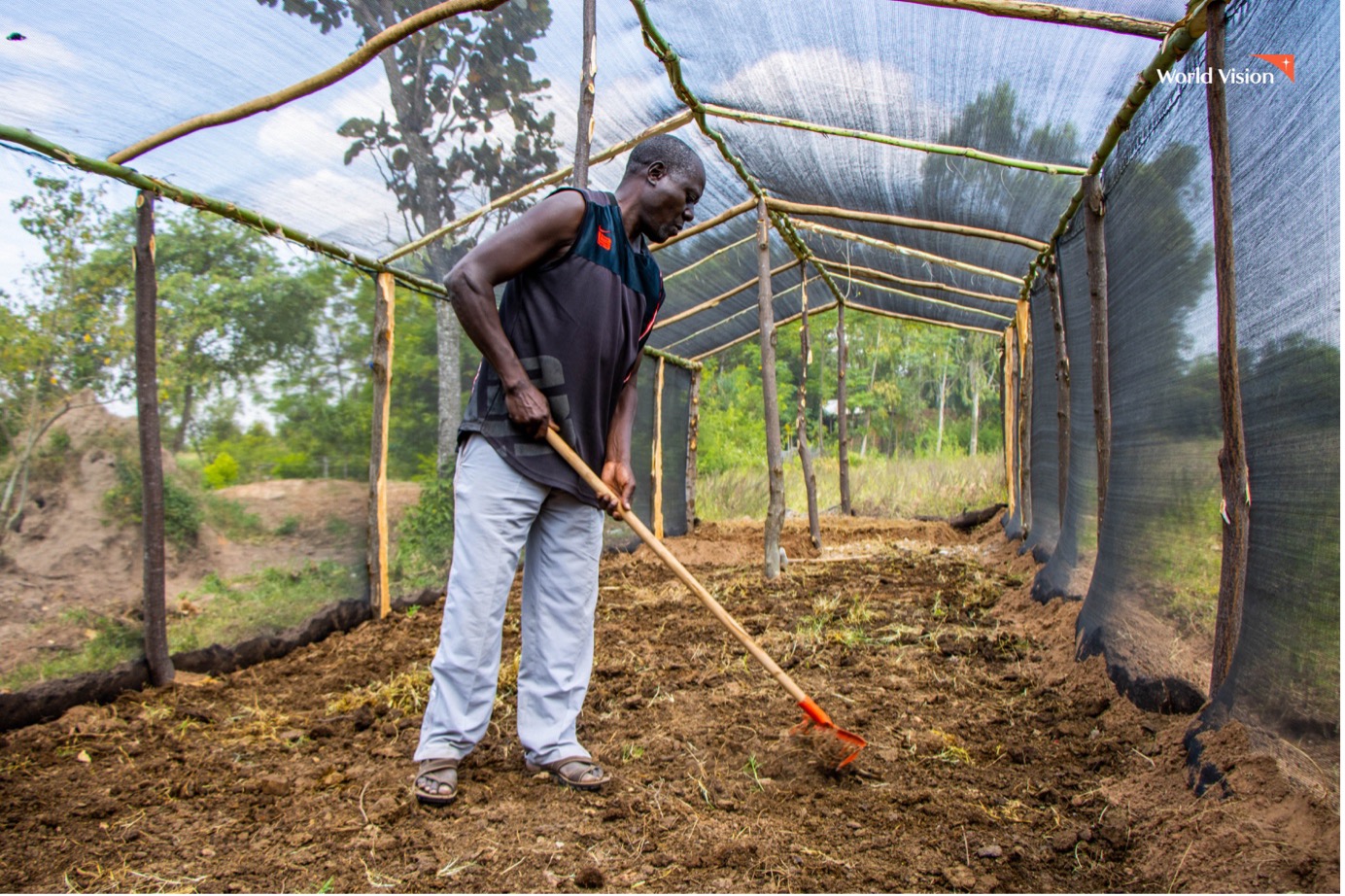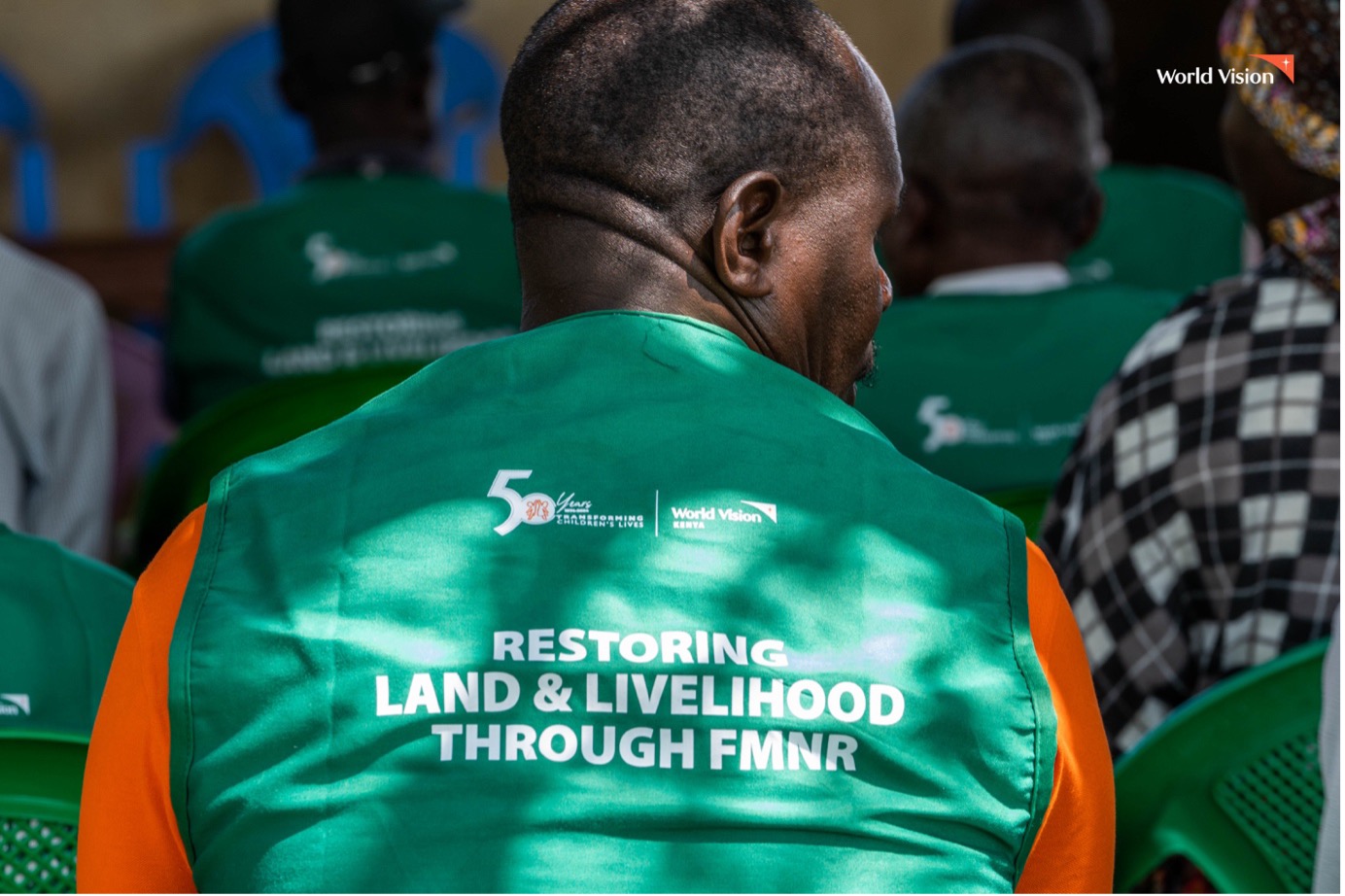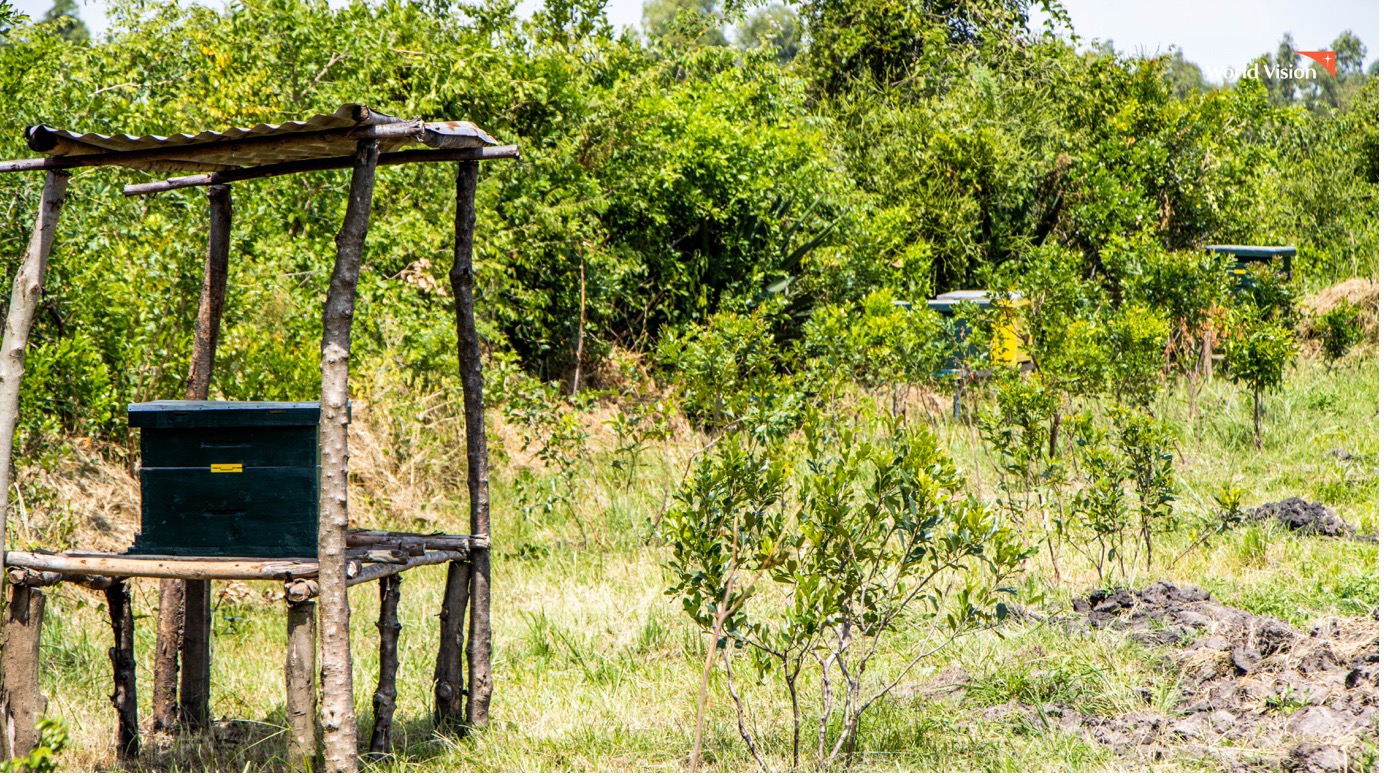Women Leading Climate Action: How One Woman in Nyatike is Transforming Her Community and the Environment

In Sango/Ponge Village, Migori County in Kenya, Gorrety Otumba, a 40-year-old mother of three, is leading a transformative journey in sustainable farming. As a lead farmer and champion of Farmer-Managed Natural Regeneration (FMNR), Gorrety's efforts are not only restoring tree cover but also significantly improving the social, economic, and environmental well-being of her community.
Gorrety’s journey with World Vision began nine years ago through a Child Sponsorship programme in her area. This initial engagement sparked her passion for farming and environmental conservation.
In 2023, when World Vision launched the "Restoring Land & Improving Livelihoods in Migori" (EOM) project, funded by the Netherlands Government, Gorrety was one of the 50 smallholder farmers selected as model farmers. She quickly embraced the training provided, and within a year, her farm had undergone a remarkable transformation.
An exposure visit organised by World Vision Kenya introduced Gorrety to the benefits of fruit tree farming and agroforestry. Equipped with essential farm tools, including a water tank, slasher, machete, rake, pruning saws, and watering can, she no longer had to rely on borrowed tools from neighbors.

"World Vision supported us with the farm tools; today, we can work easily. After the training, I have been sharing the knowledge with my husband and children, who have been very supportive," she says. Her family, especially her 14-year-old son Ibrahim, has become her first learners, eagerly implementing the new knowledge alongside her.
Gorrety's farm is now a model in her community. She has planted a variety of fruit trees, including mango, pawpaw, and cassava, and has integrated beekeeping into her farming practices.
Her farm now boasts over seven types of fruit trees, providing fresh produce for her family and generating additional income through sales. She has also allowed indigenous trees to grow, improving soil fertility, controlling erosion, and providing a sustainable fuel source. "I have realized that our area is not arid; the dryness was just in our minds," Gorrety reflects.

Goretty’s husband, Jacktone Otieno, supports her in setting up a kitchen garden to plant vegetables. © World Vision Photo/Samuel Kisambe
The "Restoring Land & Improving Livelihoods in Migori" project, which focuses on reversing environmental degradation, particularly encourages smallholder farmers—women, children, and youth—to grow trees on their farms using FMNR and Agroforestry systems.
"We empower the community to preserve and benefit from their lands and natural resources, secure their welfare and decent livelihoods, and celebrate their identity and culture," says Viviene Keya, World Vision Project Coordinator. The project not only promotes the protection of indigenous trees but also aims to enhance the livelihoods of the community, ensuring that no one, especially the children, is left behind.

Thanks to World Vision's support, Gorrety has made significant strides. She recently installed a shade net, planted tree and vegetable seedlings for household use and sale, constructed a water reservoir to collect rainwater for irrigation, and started experimenting with rare fruit trees. Her goal is to become a leading supplier of fruits in her region and beyond.
With the increasing forest cover on her land, Gorrety has diversified her income sources through beekeeping. The project trained her and 49 other farmers in beekeeping activities, providing each with one beehive to start.
Today, more than half of these farmers are harvesting honey, and many are investing in additional hives to increase their yields.

Gorrety’s impact extends beyond her farm. She now mentors 25 other farmers, teaching them the principles of FMNR and agroforestry. "I have become a role model farmer in my community," Gorrety proudly states. She envisions her farm becoming a learning site where more farmers can adopt sustainable farming practices, ensuring a resilient future for her community.
World Vision has been working closely with Kenya's national and county Governments to empower communities to grow and nurture fruit and indigenous trees. These trees help increase crop yields and boost family income, cushioning many households from the adverse effects of climate change, such as perennial droughts and floods.
By Felix PiliPili, Communications Specialist, World Vision Kenya